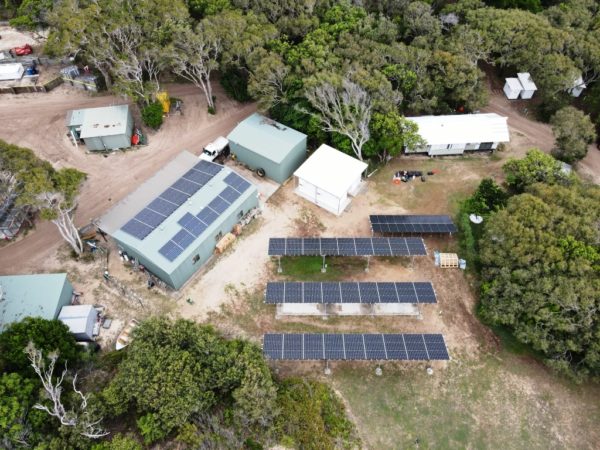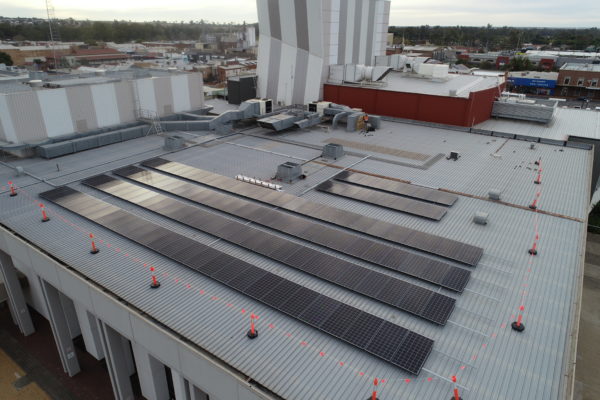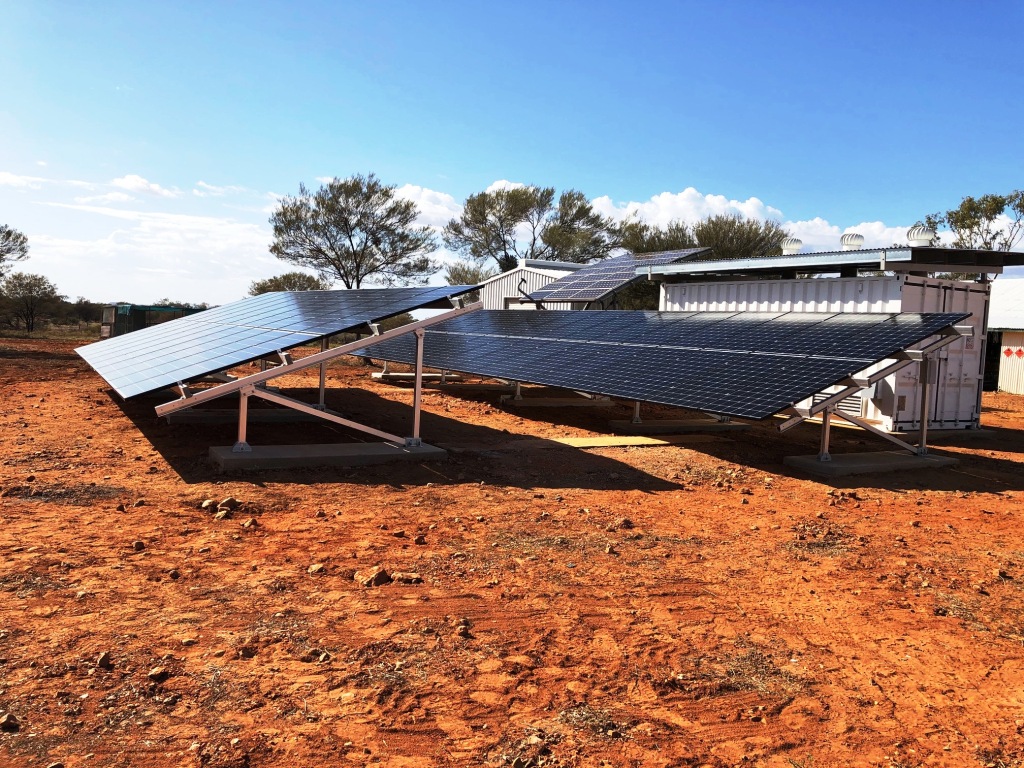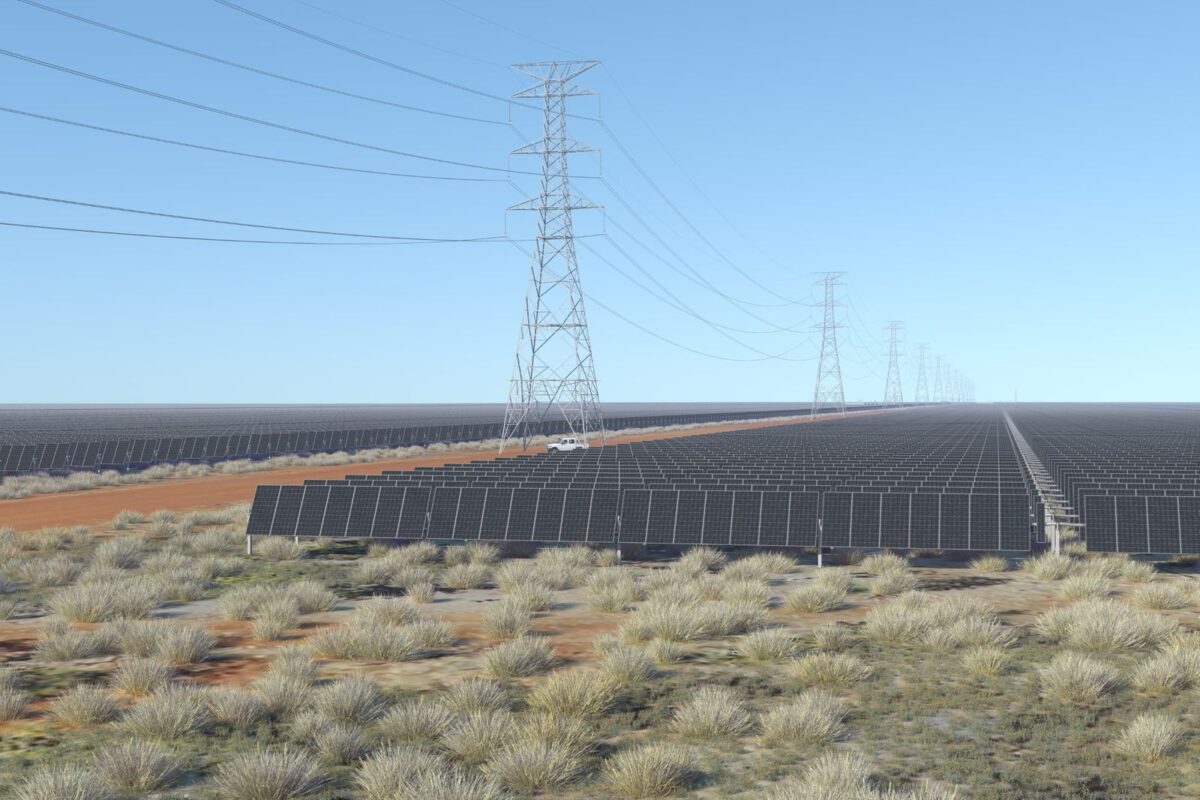Australia’s only solar PV module manufacturer, Tindo Solar supplied the panels for the Queensland government program which delivered a combined 200 kW of solar PV coupled with 2 MWh of battery energy storage at five remote national park facilities scattered around the state.
The standalone power systems (SPS) have already been installed at Queensland Parks and Wildlife Services (QPWS) ranger bases at Dundubara on K’gari (Fraser Island), Diamantina and Welford to the west, and Lakefield and New Laura in far north Queensland.
Another two of the solar+battery systems are scheduled to be installed before the end of the year with an 85 kW system to be commissioned at Boodjamulla National Park in far north Queensland and another at the Heathlands Resources Reserve near the tip of Cape York.
The SPS replace the existing diesel fuel generators, providing autonomous renewable power to QPWS rangers and their families, enabling critical services such as water purification, irrigation, plumbing and fire-fighting.
The systems, designed and installed by Brisbane-based Solar Hybrids, feature Tindo Solar’s Karra 380P modules along with Australian-made Selectronic inverters while lithium batteries were sourced from Spanish manufacturer Cegasa and German company Sonnenschein provided sealed lead-acid gel batteries.
Tindo Solar chief executive Shayne Jaenisch said the Queensland government’s decision to choose Australia-made solar modules was a shot in the arm for the local manufacturing industry, and an indication that Australian governments are ready to prioritise quality, reliability and safety in their energy transition rather than primarily focusing on cost.
“We congratulate the Queensland government for taking the lead on this issue,” he said.
“They have installed world’s-best power systems for their remote bases and specified durability, safety and reliable power output under harsh conditions, rather than demanding the cheapest.”

Image: Solar Hybrids
Jaenisch conceded Tindo Solar modules, which are made with imported cells, are not as cheap as some alternatives, but said they come with a 25-year warranty and produce performances that consistently top the independent solar panel rankings by Choice and Desert Knowledge Australia Solar Centre.
“The Queensland government needed a very tough solar panel that produces reliable power in a harsh climate, allowing remote systems to be weaned off diesel,” he said.
Jaenisch said the SPS systems include online performance monitoring and control portals, as well as sophisticated monitoring of fault redundancy, system reliability and longevity.
“They have a mix of AC and DC coupled solar, and fault alarms for the systems’ air conditioners and back-up diesel generators,” he said. “They’re globally best-of-breed and they’re powered by solar panels made here, in Australia.”
Tindo Solar, which last month secured $1 million in federal government funding which will help it transition to new M10 cell technology and boost production capacity with a new $6 million state-of-the-art manufacturing facility in Adelaide nearing completion, is also supplying the modules for a 243 kW solar rooftop rollout at Dubbo in New South Wales.

Image: DRC
The Dubbo Regional Council is mounting 614 solar PV modules on the rooftops of seven council properties in move it expects will save up to $70,000 a year in electricity bills.
The installation will also help council in achieving its Energy Strategy goal to obtain 50% of its predicted electricity consumption from renewables by 2025.
“This project is just one of the many ways in which Council is striving to reduce its emissions, while increasing the economic and environmental benefits to the community,” Dubbo Mayor Stephen Lawrence said in a statement.
“In 2020, council upgraded 88% of its street light network to LED technology, saving electricity and maintenance bills by more than $450,000 for that year alone.”
The latest rooftop installation will triple the amount of PV systems installed across the council’s properties, with other major installations including a 70 kW system at the Western Plains Cultural Centre, a 30 kW system at the Hawthorn St Depot, and a 12 kW system at Barden Park.
This content is protected by copyright and may not be reused. If you want to cooperate with us and would like to reuse some of our content, please contact: editors@pv-magazine.com.









By submitting this form you agree to pv magazine using your data for the purposes of publishing your comment.
Your personal data will only be disclosed or otherwise transmitted to third parties for the purposes of spam filtering or if this is necessary for technical maintenance of the website. Any other transfer to third parties will not take place unless this is justified on the basis of applicable data protection regulations or if pv magazine is legally obliged to do so.
You may revoke this consent at any time with effect for the future, in which case your personal data will be deleted immediately. Otherwise, your data will be deleted if pv magazine has processed your request or the purpose of data storage is fulfilled.
Further information on data privacy can be found in our Data Protection Policy.